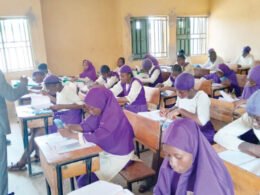The United Nations Children’s Education Fund (UNICEF) has identified several key factors contributing to the recent outbreak of measles and other diseases in Nigeria. These factors include a decline in herd immunity, importation of cases, waning immunity, and inadequate public health infrastructure. Dr. Pita Obam, a UNICEF Consultant on Social and Behavioral Issues, made these remarks during a one-day meeting of the State Social Mobilisation and Technical Committee (S-SOMTEC) held in Abeokuta, Ogun State.
Dr. Obam noted that misinformation and vaccine hesitancy have further exacerbated the health crisis. The meeting, organized by the State Ministry of Information and Strategy in collaboration with UNICEF and other stakeholders, aimed to address these challenges and strategize solutions.
The UNICEF consultant highlighted that the continuous outbreak of measles and other diseases is primarily due to low vaccination rates. To combat this, Obam emphasized the need for collective action from all stakeholders to create awareness, disseminate accurate information through official channels, and counter rumors about vaccine safety. He also called for supportive supervision and resolution of non-compliance issues.
Measles, being highly contagious, poses a significant risk to unvaccinated children. Therefore, protecting children through vaccination is crucial. Dr. Obam announced an upcoming measles vaccination campaign scheduled to run from September 19 to September 25. He advised parents to ensure their children, particularly those between nine and 59 months of age, receive the vaccine. This campaign aims to complete childhood immunization at health facilities and address the issue of ‘zero dose children’—those who have not received any doses of essential vaccines.
Additionally, Dr. Olubukola Omotoso, a public health educator with the Ministry of Health, provided an update on the cholera outbreak situation in the state. Her presentation included a detailed breakdown of the ongoing challenges and response measures.
The meeting underscored the urgent need for enhanced public health initiatives and community engagement to improve vaccination coverage and address the public health concerns facing Nigeria.









